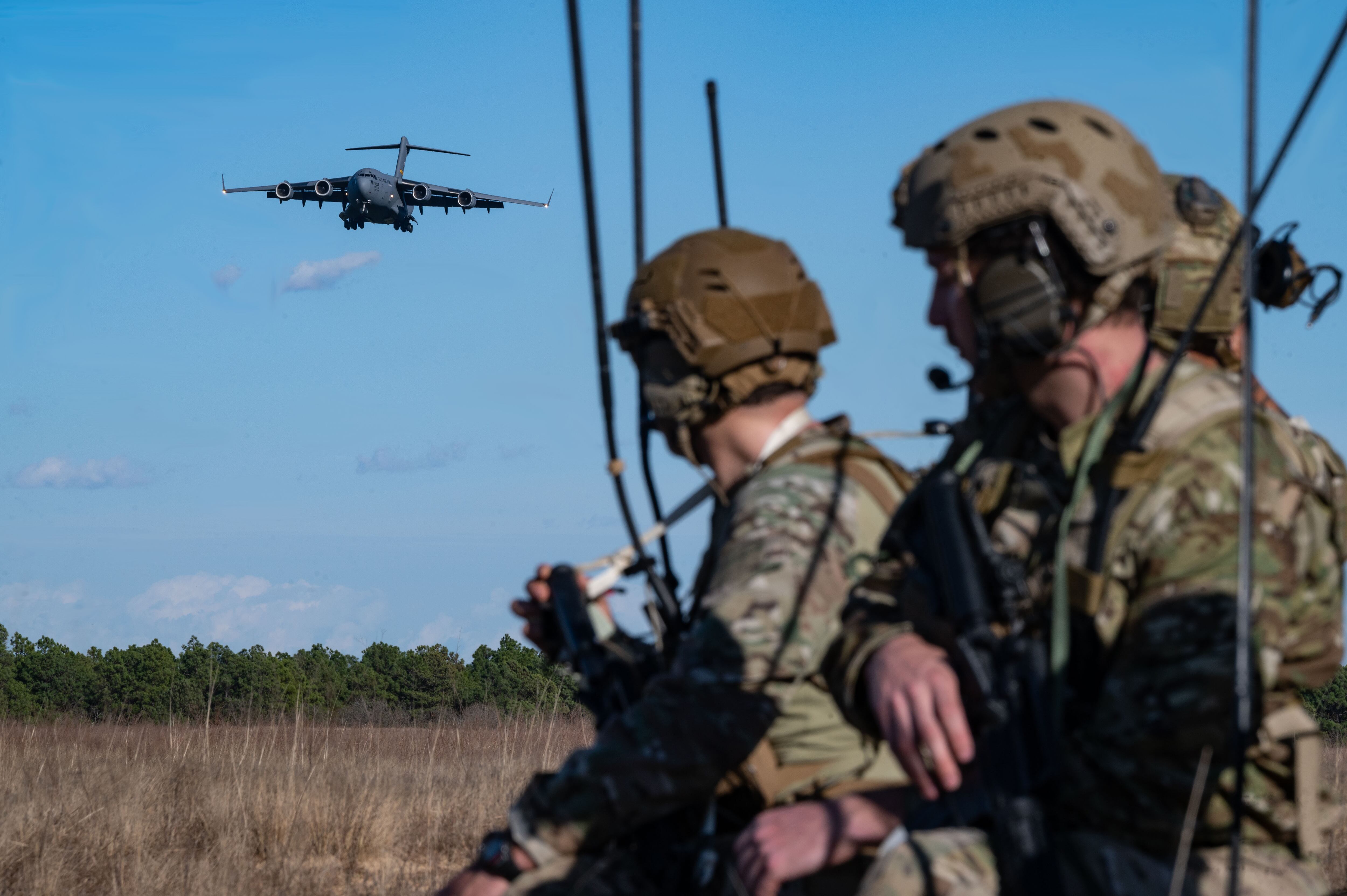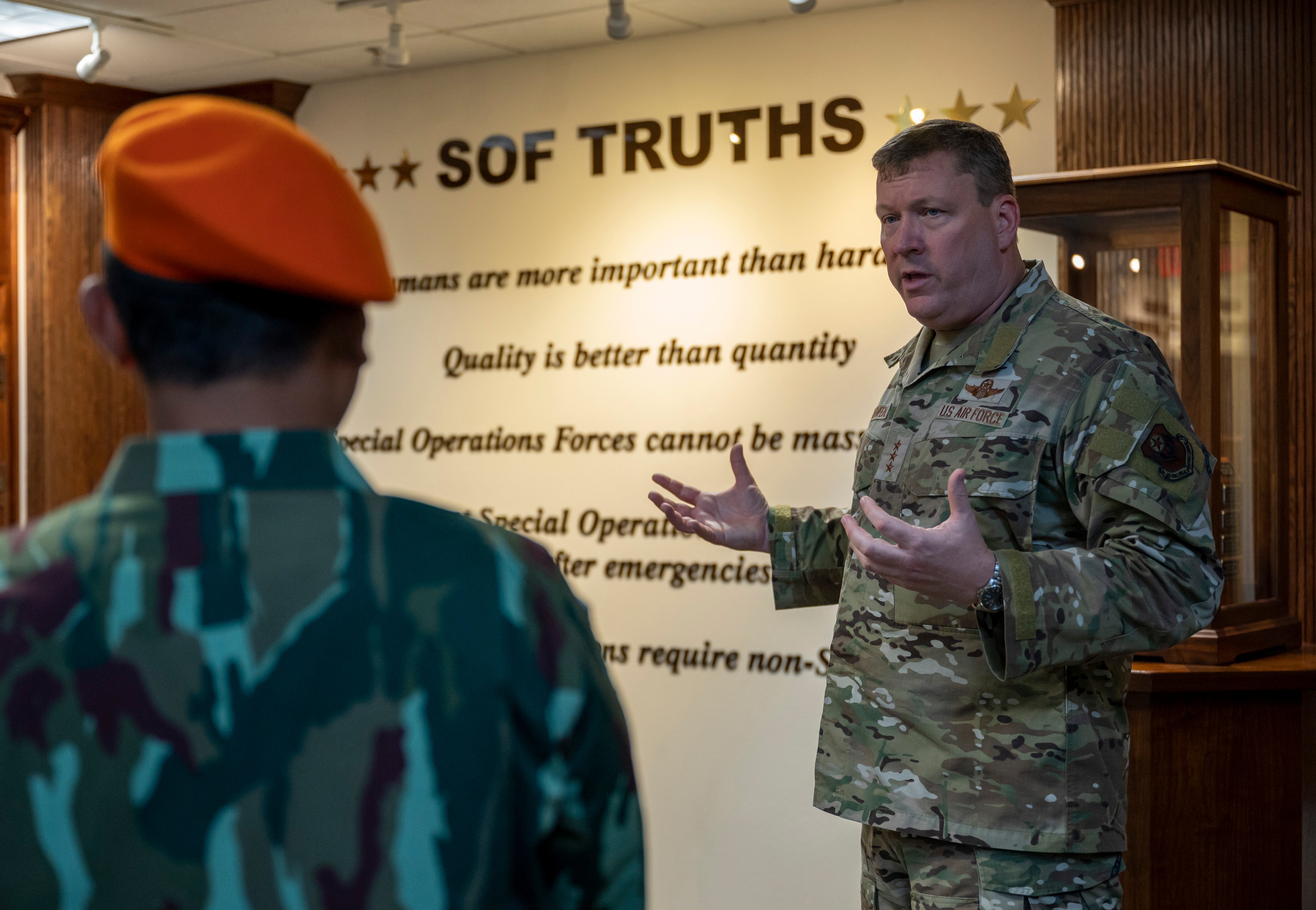Air Force special operations boss Lt. Gen. Tony Bauernfeind has been nominated to lead the U.S. Air Force Academy in Colorado.
Bauernfeind’s selection by President Joe Biden on Tuesday comes fewer than 18 months after he took over as the head of Air Force Special Operations Command — an unusually brief tenure for a top officer of an Air Force major command.
RELATED

“I am humbled by the nomination to be the 22nd superintendent of our academy,” Bauernfeind said in a USAFA release. “The opportunity to develop warfighters, leaders of character and quality, and critical thinkers for our Air Force and Space Force is an honor. I look forward to building on the legacy of Lt. Gen. Clark and all prior superintendents as we ready our future officers to lead and win in uncertain, complex and contested environments.”
A 1991 USAFA graduate, Bauernfeind spent the first part of his career as a pilot, slipping troops and equipment into combat zones on the MC-130J transport aircraft and the MQ-9 attack drone before amassing more than a decade of experience in senior leadership roles at special ops organizations around the globe.
U.S. Special Operations Command is “extremely proud that the Air Force nominated Lt. Gen. Bauernfeind as the next Air Force Academy superintendent,” SOCOM spokesperson Col. Allie Weiskopf said Friday. “He is exactly the right person to lead the next generation of Air Force officers.”
The nominee to replace him, Brig. Gen. Michael Conley, was tapped to make an uncommon jump from one-star to three-star general in order to fill the seat.
Conley has served as AFSOC’s operations director at Hurlburt Field, Florida, since July. The decorated helicopter and tiltrotor pilot earned his commission from the Air Force Academy in 1996, going on to hold leadership and staff roles across AFSOC, U.S. Space Command, Air Mobility Command and the Joint Staff.
Prior to his current role, Conley’s most recent job within AFSOC was commanding the 1st Special Operations Wing at Hurlburt from 2018 to 2020.
“Brig. Gen. Conley was nominated as the Air Force special operations commander because he is the most qualified officer with significant experience in special forces and integrating tactical units, joint operation centers and inter-agencies,” an Air Force official said Friday.
The transition comes as Air Force special operations leaders have pushed for years to reorient the community to succeed in future conflicts that are expected to move faster, require more stealth and deception, and prioritize digital attacks over traditional roles like calling in airstrikes on the ground.
Bauernfeind served as U.S. Special Operations Command’s vice commander from 2020 to 2022 before taking over as AFSOC commander that December. He succeeded Gen. Jim Slife — who spearheaded the organization’s modernization efforts, drawing criticism from traditionalists — at AFSOC after the four-star was promoted to serve as Air Force vice chief of staff.
Air Force special operators are in the midst of bringing on a new fixed-wing aircraft, dubbed the OA-1K, to fly armed overwatch missions in support of counterterrorism operations. The new fleet is slated to enter the inventory through 2030, though U.S. Special Operations Command in its fiscal year 2025 budget signaled plans to buy fewer than the expected 75 aircraft due to resource constraints.
Tensions have periodically flared between the Air Force, SOCOM and lawmakers who, over the past 15 years, have pushed for a new aircraft as a modern, affordable solution for America’s enduring counterterror fight, while at other times questioning why a possibly vulnerable plane is needed at all.
The Air Force command has also sought to rethink the role of combat diving in Air Force operations and update other aspects of training to reflect the needs of modern warfare.
AFSOC is now in the midst of returning its CV-22 Osprey fleet to the air following a fatal crash off the coast of Japan that killed eight airmen in November and prompted the U.S. military to ground hundreds of Ospreys for months. The Pentagon believes a mechanical failure caused the accident but has not publicly revealed which component was at fault.
If confirmed by the Senate, Bauernfeind will succeed Lt. Gen. Richard Clark, who joined the academy in 2020. There, Bauernfeind would become the latest three-star general to shepherd the four-year university as it expands its offerings to students looking to join the Space Force, tries to curb the number of sexual assaults among cadets, looks to continue the recent success of its NCAA Division I football team, and more.
USAFA graduates earn a bachelor of science degree and a commission as a second lieutenant.
Clark, a bomber pilot and nuclear operations official who became USAFA’s first Black superintendent, oversaw the gradual return of more than 4,000 cadets to in-person classes amid the coronavirus pandemic — and dealt with the fallout of a cheating scandal that became one of the most widespread spates of academic misconduct in the school’s history.
“Leading the academy has been an amazing experience, and I know that our academy is in great hands with Lt. Gen. Bauernfeind,” Clark said in a release.
He plans to retire in June and will begin a second career as head of the College Football Playoff.
This story was updated May 20 at 10:55 a.m. ET to include comments from Bauernfeind and Clark and to clarify initiatives underway within Air Force Special Operations Command.
Rachel Cohen is the editor of Air Force Times. She joined the publication as its senior reporter in March 2021. Her work has appeared in the Washington Post, the Frederick News-Post (Md.), Air and Space Forces Magazine, Inside Defense, Inside Health Policy and elsewhere.





